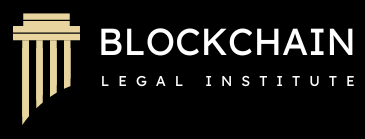
Utah recognizes decentralized autonomous organizations (DAOs) through specific statutes and regulations that outline their legal status, governance, and operational requirements. These laws establish DAOs as distinct legal entities, provide guidelines for their formation and operation, and address various aspects such as taxation, restructuring, and compliance.
48-5-104. Legal personality. establishes that a DAO is a legal entity separate from its members, with
the capacity to sue and be sued, meet its liabilities through its assets, have any lawful purpose, and
possess perpetual duration 48-5-104. Legal personality..
48-5-201. Formation requirements. requires a DAO to submit evidence of compliance with specific
requirements, including deployment on a permissionless blockchain, having a unique public address,
making its software code publicly available, undergoing quality assurance, and maintaining a
decentralized governance system 48-5-201. Formation requirements..
48-5-102. Governing document hierarchy — Governing law. states that a DAO is governed by the act,
its by-laws, the Utah Revised Uniform Limited Liability Company Act if the act and by-laws are silent,
and principles of law and equity 48-5-102. Governing document hierarchy — Governing law..
48-5-203. By-laws. mandates that a DAO adopt by-laws that establish its internal organization and
procedures, which must be set out in plain terms and may contain any lawful provisions for managing
the entity 48-5-203. By-laws..
48-3a-1405. Application to existing relationships. addresses the application of the chapter to limited
liability companies formed before January 1, 2014, and outlines the governance of such companies
before and after January 1, 2016 48-3a-1405. Application to existing relationships..
48-5-401. Asset subscription and payment. specifies that no minimum capital requirements apply to a
DAO, but if a DAO wishes to maintain a minimum amount of capital, its by-laws must specify the rules
for subscription and payment, as well as rules for exiting the organization 48-5-401. Asset
subscription and payment..48-5-406. Taxation. provides that a DAO can elect to be classified as a corporation for federal tax
purposes, subjecting it to corporate franchise and income taxes, or be classified as a partnership for tax purposes, with income allocated to members in proportion to their membership interest 48-5-406.
Taxation..48-5-404. Restructuring. ensures that a DAO retains its legal personality and limited liability during
restructuring, provided the new software code meets formation requirements and proper notice is
given if a new public address is associated 48-5-404. Restructuring..U.A.C. R154-3-2 defines terms used in the Decentralized Autonomous Organization Act, including
“address”, “auditing organization”, and “DAO” R154-3-2. Definitions..
U.A.C. R154-3-4 allows the division to prescribe forms or cover sheets for documents required or
permitted to be filed under the Decentralized Autonomous Organization Act, though their use is not
mandatory unless specified R154-3-4. Forms..
U.A.C. R154-3-9 outlines grounds for refusing a DAO certificate of organization, including failure to
provide required items or evidence of compliance with filing requirements R154-3-9. Grounds for
Refusal..
U.A.C. R52-7-4 pertains to the denial of licenses for horse racing meetings and the duties of licensed
organizations, which is not directly related to DAOs R52-7-4. Racing Organization..
U.A.C. R590-250-5 details the initial and renewal licensing process for Professional Employer
Organizations (PEOs), which is not directly related to DAOs R590-250-5. Initial and Renewal
Licensing Process..
U.A.C. R590-246-2 establishes the purpose and scope of licensing and regulatory requirements for
PEOs, which is not directly related to DAOs R590-246-2. Purpose and Scope..
U.A.C. R865-6F-32 addresses the taxation of financial institutions, including apportionment and
allocation of net income, which is not directly related to DAOs R865-6F-32. Taxation of Financial
Institutions Pursuant to Utah Code Ann. Sections 59-7-302 through 59-7-321..
U.A.C. R850-24-175 provides definitions related to mineral leases and materials permits, which is not
directly related to DAOs R850-24-175. Definitions..
48-5-104. Legal personality. | UT – Utah Code Annotated | Codes | Utah
48-5-201. Formation requirements. | UT – Utah Code Annotated | Codes | Utah
48-5-102. Governing document hierarchy — Governing law. | UT – Utah Code Annotated | Codes | Utah
48-5-203. By-laws. | UT – Utah Code Annotated | Codes | Utah
48-3a-1405. Application to existing relationships. | UT – Utah Code Annotated | Codes | Utah
48-5-401. Asset subscription and payment. | UT – Utah Code Annotated | Codes | Utah
48-5-406. Taxation. | UT – Utah Code Annotated | Codes | Utah
48-5-404. Restructuring. | UT – Utah Code Annotated | Codes | Utah
R154-3-2. Definitions. | UT – Utah Administrative Code | Administrative Codes | Utah
R154-3-4. Forms. | UT – Utah Administrative Code | Administrative Codes | Utah
R154-3-9. Grounds for Refusal. | UT – Utah Administrative Code | Administrative Codes | Utah
R52-7-4. Racing Organization. | UT – Utah Administrative Code | Administrative Codes | Utah
R590-250-5. Initial and Renewal Licensing Process. | UT – Utah Administrative Code | Administrative Codes R590-246-2. Purpose and Scope. | UT – Utah Administrative Code | Administrative Codes | UtahR865-6F-32. Taxation of Financial Institutions Pursuant to Utah Code Ann. Sections 59-7-302 through 59-
7-321. | UT – Utah Administrative Code | Administrative Codes | Utah
R850-24-175. Definitions. | UT – Utah Administrative Code | Administrative Codes | Utah
Please check back to this page since updates can happen.
